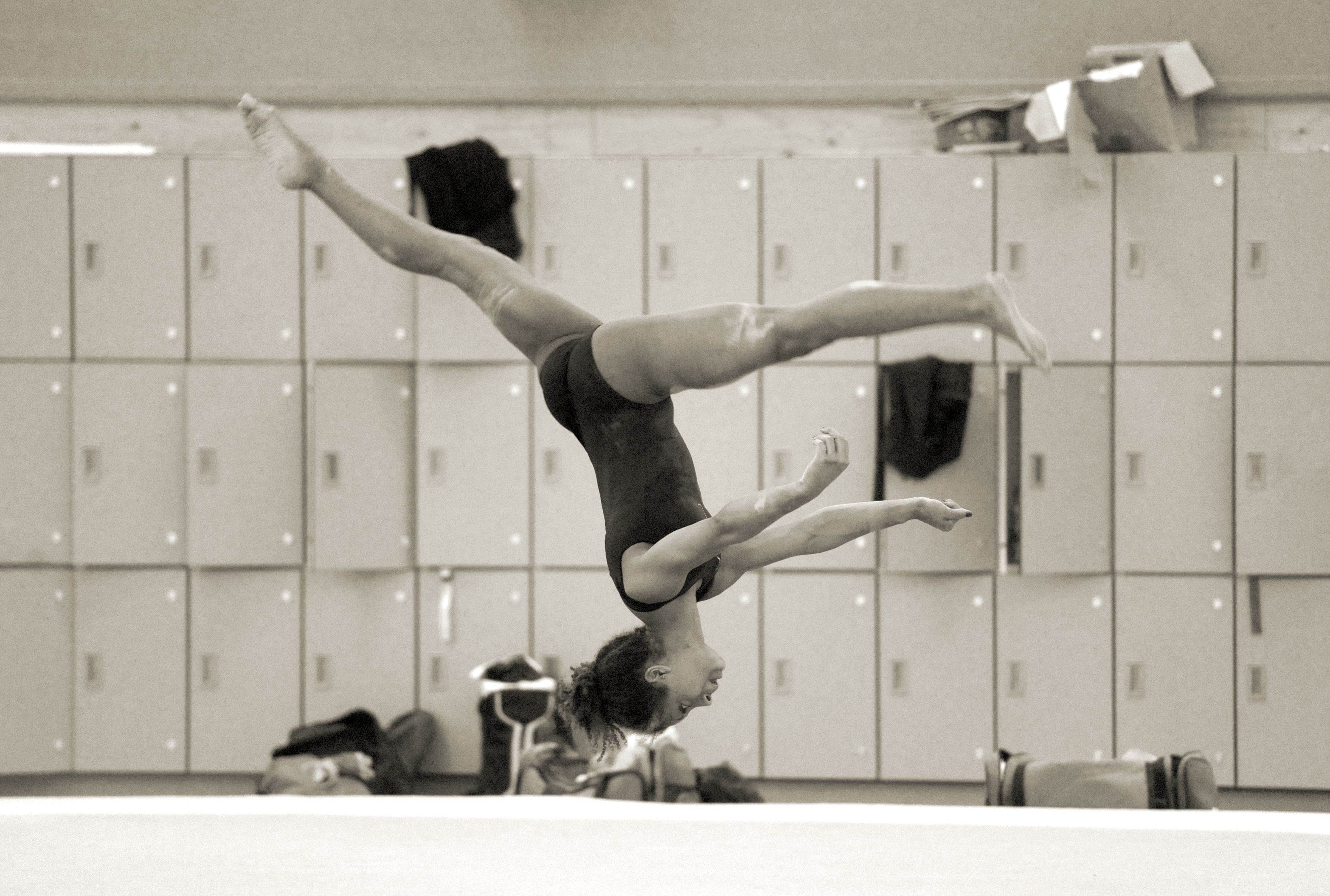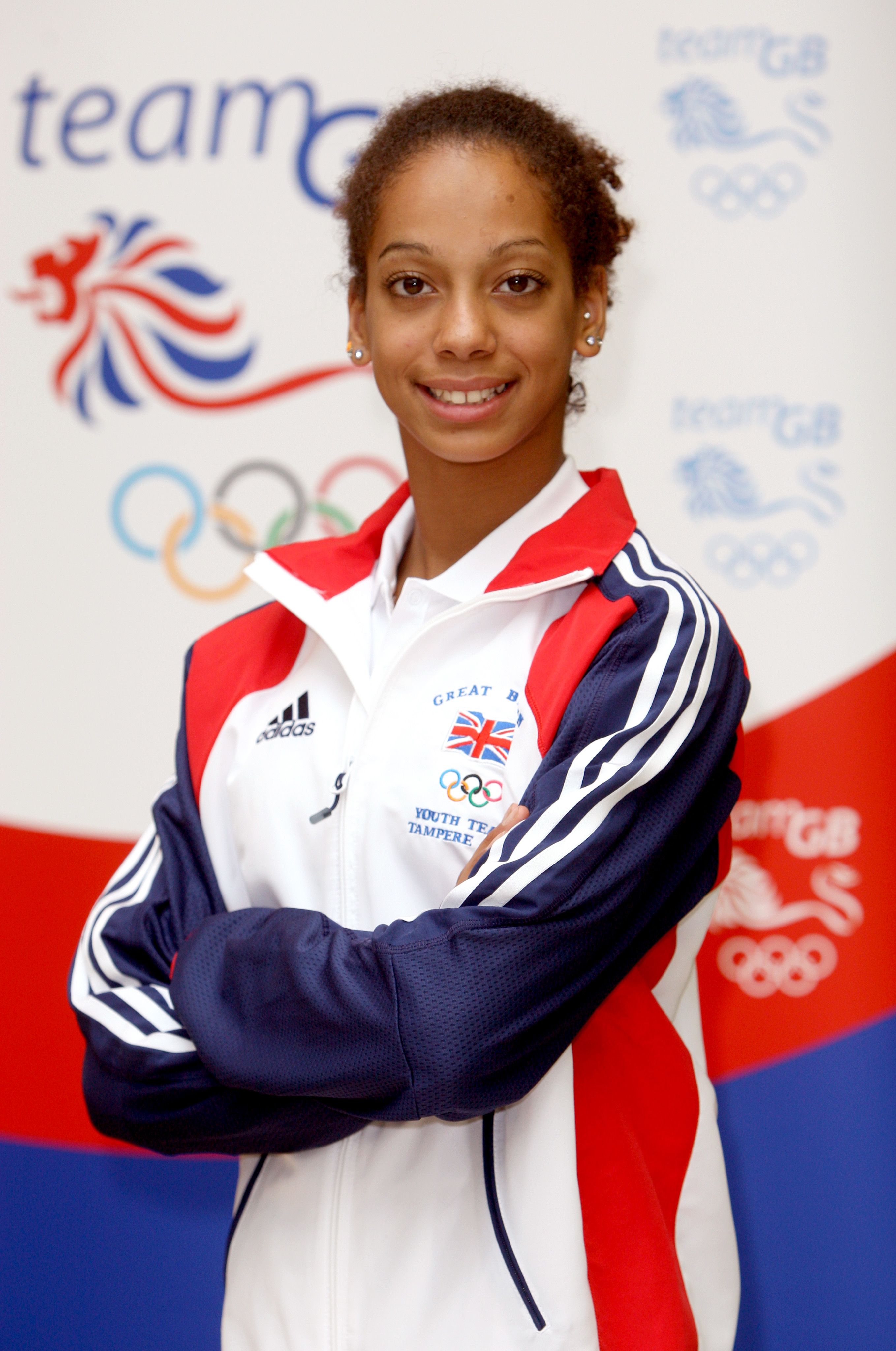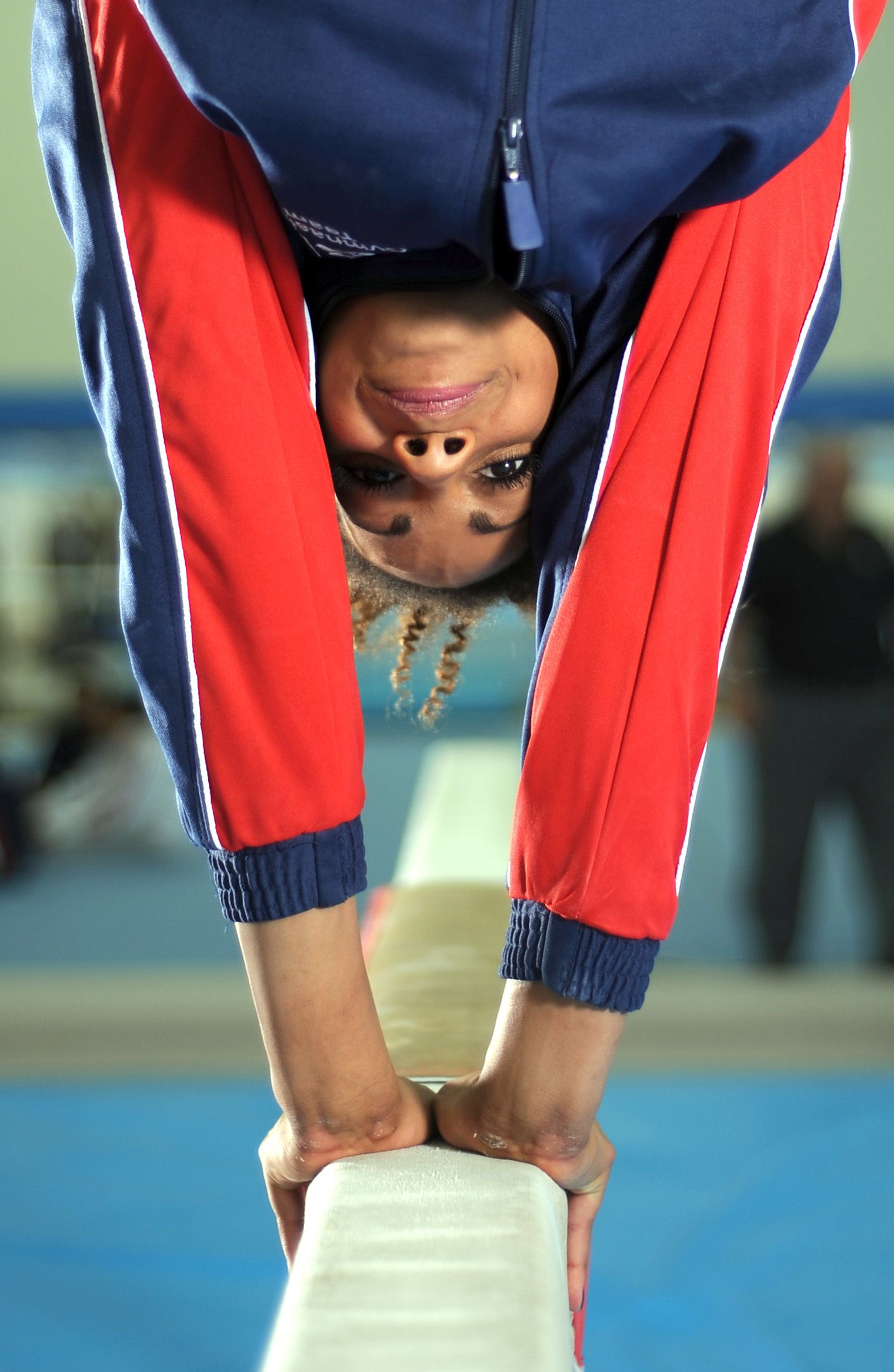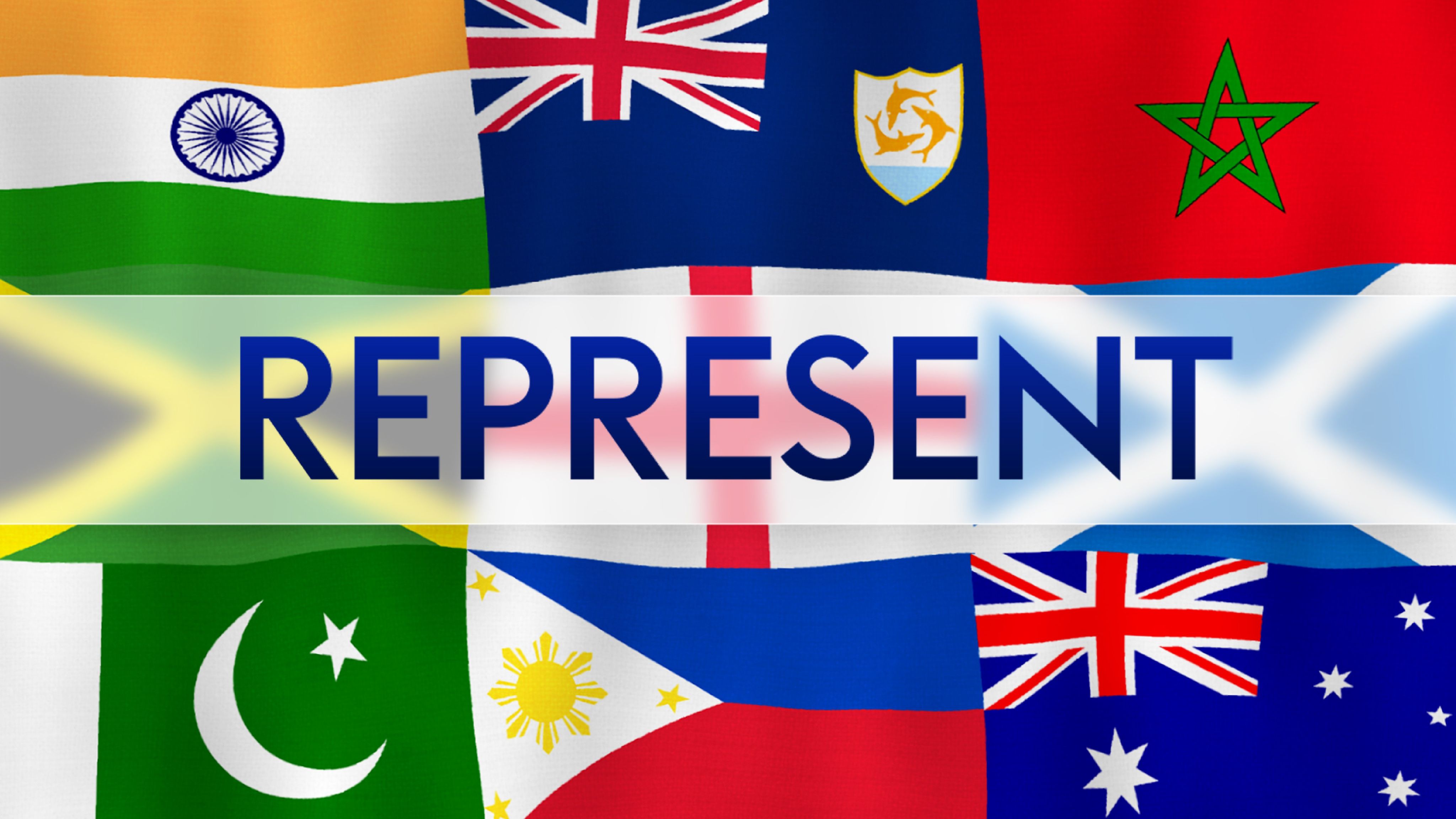
Represent is a one-off Sky Sports series exploring how heritage, nationality and ethnicity interlink to make an athlete's sporting identity.
Before being a stunt double for Lauren James or Wonder Woman, Danusia Francis was a gymnast.
Born near Coventry, she grew up competing for Heathrow Gymnastics Club and then Great Britain.
Half Jamaican and half Polish, as a child Francis never thought about the possibility of representing either country, having been in the British Gymnastics system from the age of five.
Her career was initially built towards London 2012, where Francis was a reserve for Team GB.
It finally ended in heartbreak at the Tokyo Olympics in 2021. Just two days before she was due to compete - this time for Jamaica - the then 27-year-old tore her ACL.
Francis withdrew from the balance beam, the vault and the floor exercise. But she chose to continue in the uneven bars, with her knee bandaged. She scored the lowest of any competitor, with the judges deducting 6.5 points for various infractions, awarding her only a 0.5 difficulty score.
However, her 9.033 execution score was the highest for any athlete on uneven bars at the Games.
Now, no one can take away the title of Olympian from Danusia Francis.
But it was about more than just that day in Tokyo. It was about history, and learning about her ancestors - from Auschwitz in occupied Poland to Sam Sharpe Square in Montego Bay.
It was about her journey.
'In the future, there could be a Jamaican gymnast on that podium... knowing I was maybe a tiny part of that is exciting.'
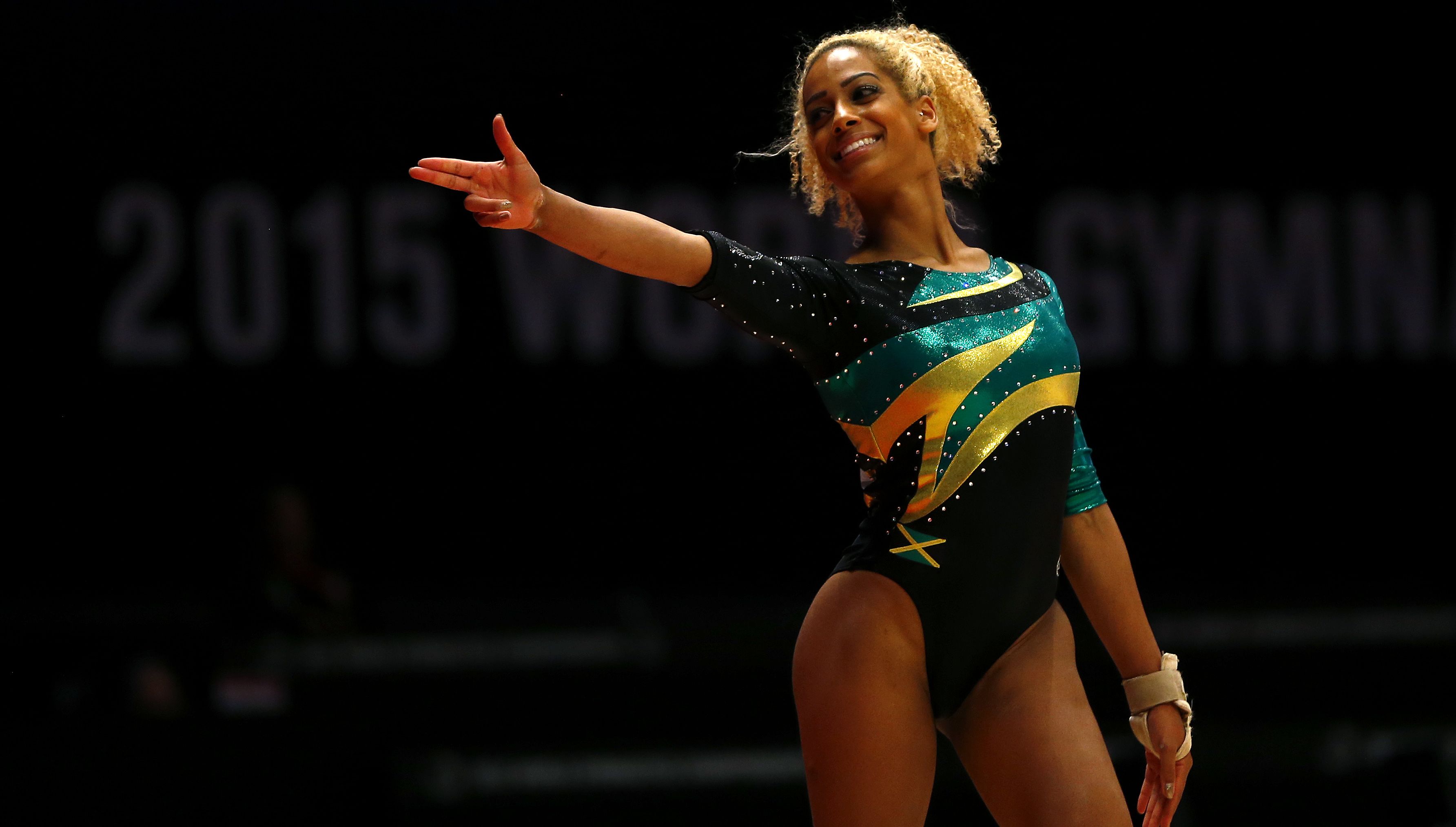
The London 2012 Olympic Games was always the dream, and Francis came excruciatingly close as a reserve for the Great Britain women's artistic team.
She had always planned to retire after 2012, as an 18-year-old, but ended up securing a scholarship to study at UCLA in the US.
So instead, Francis continued to compete in the US collegiate system, the NCAA, the highest level of competition for the sport outside of the elite pathway.
It was the NCAA route that ignited her passion for the sport, when in 2015, Francis returned to elite gymnastics as a member of Jamaica's team at the World Championships.
"Obviously I would have been so proud to compete for Great Britain and I did in other competitions, but it was the Olympics that was the dream," she tells Sky Sports.
Francis was at university in the US when her mum and brother began talking to the Jamaican side of her family - her dad's side - to sort out the documents she needed to switch nationality.
"It was really great because we got to get in touch with a lot of my family members that we didn't really know. My parents split up so we didn't have a strong relationship with my dad's side.
"We got to know my great-uncle and all of his children and now we have a good relationship with them, so that's been one incredible thing that's come out of everything," she said.
Wanting to compete on the same team as Usain Bolt was one reason she was so excited about the prospect of competing for Jamaica at an Olympic Games, Francis jokes, but what else was it that drew her to Jamaica rather than Poland?
"I felt like I would just fit in there. With the spirit that you see with the Jamaican athletes with their personality, I definitely thought I'd fit the mould," she says. "I thought I'd fit into that team and have a good time.
"And my Polish isn't great!"
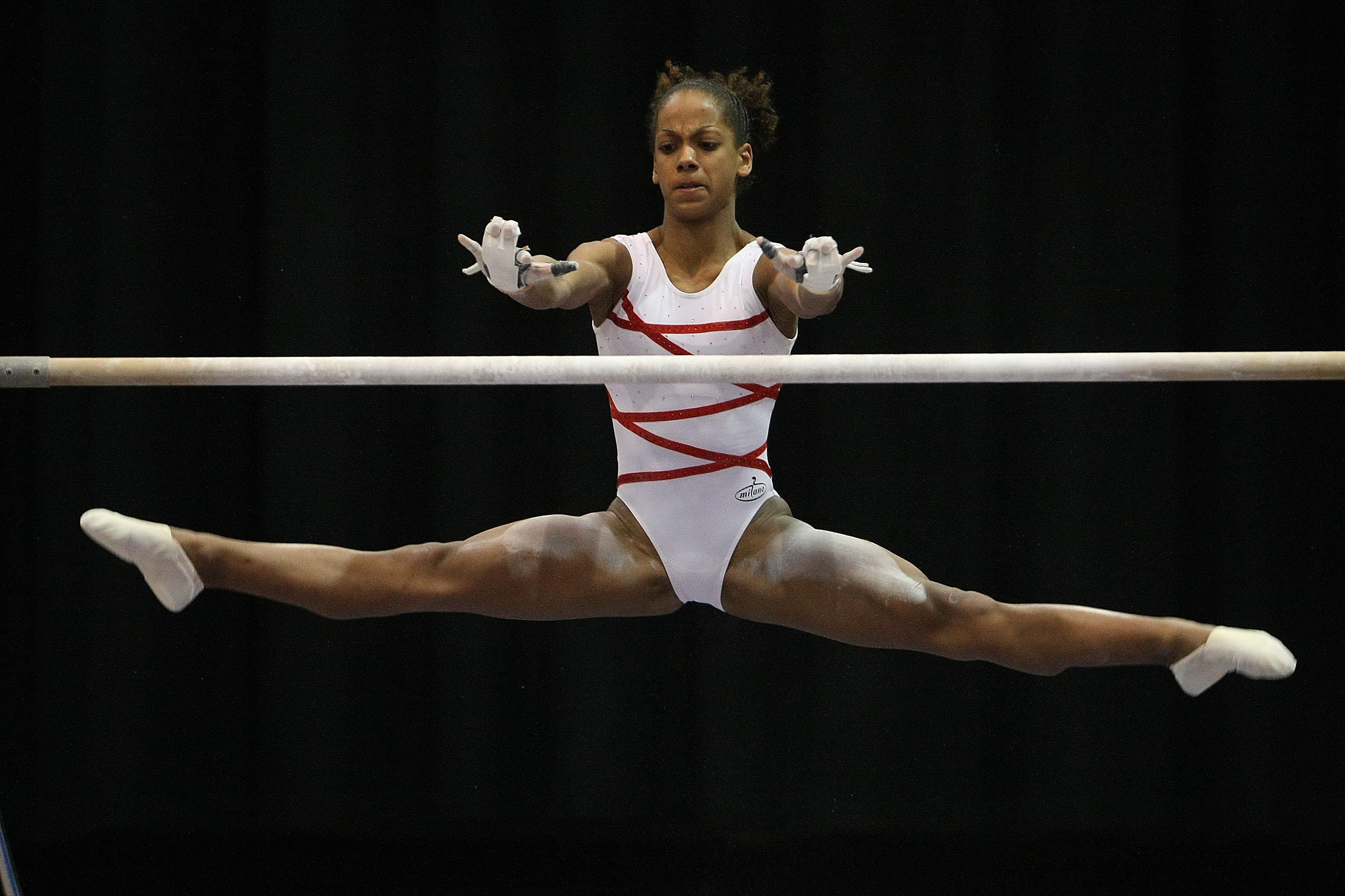
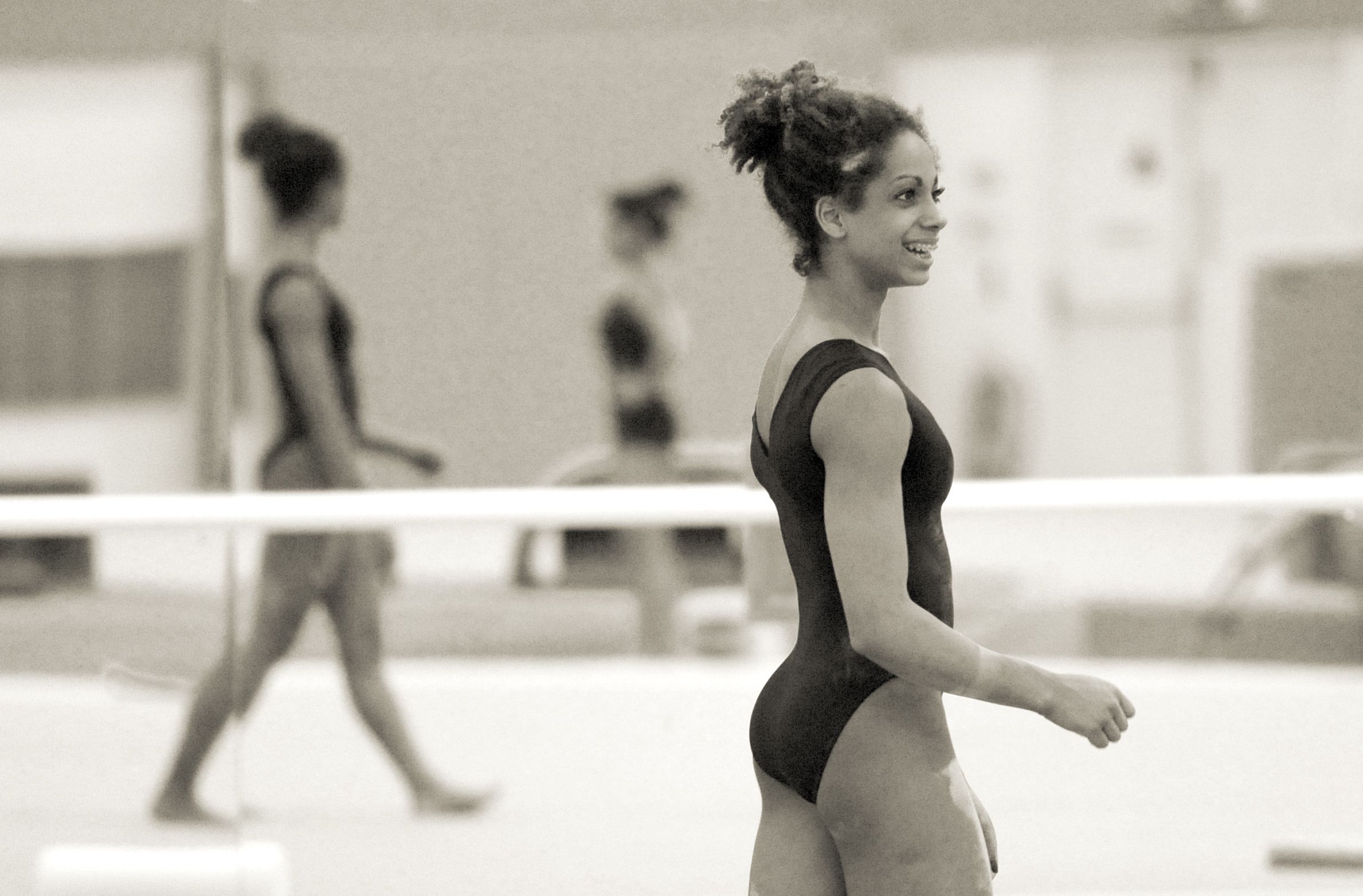
'Thinking about how some of my ancestors were probably slaves, and now I get to have all this freedom to do the sport I love, I feel so proud.'
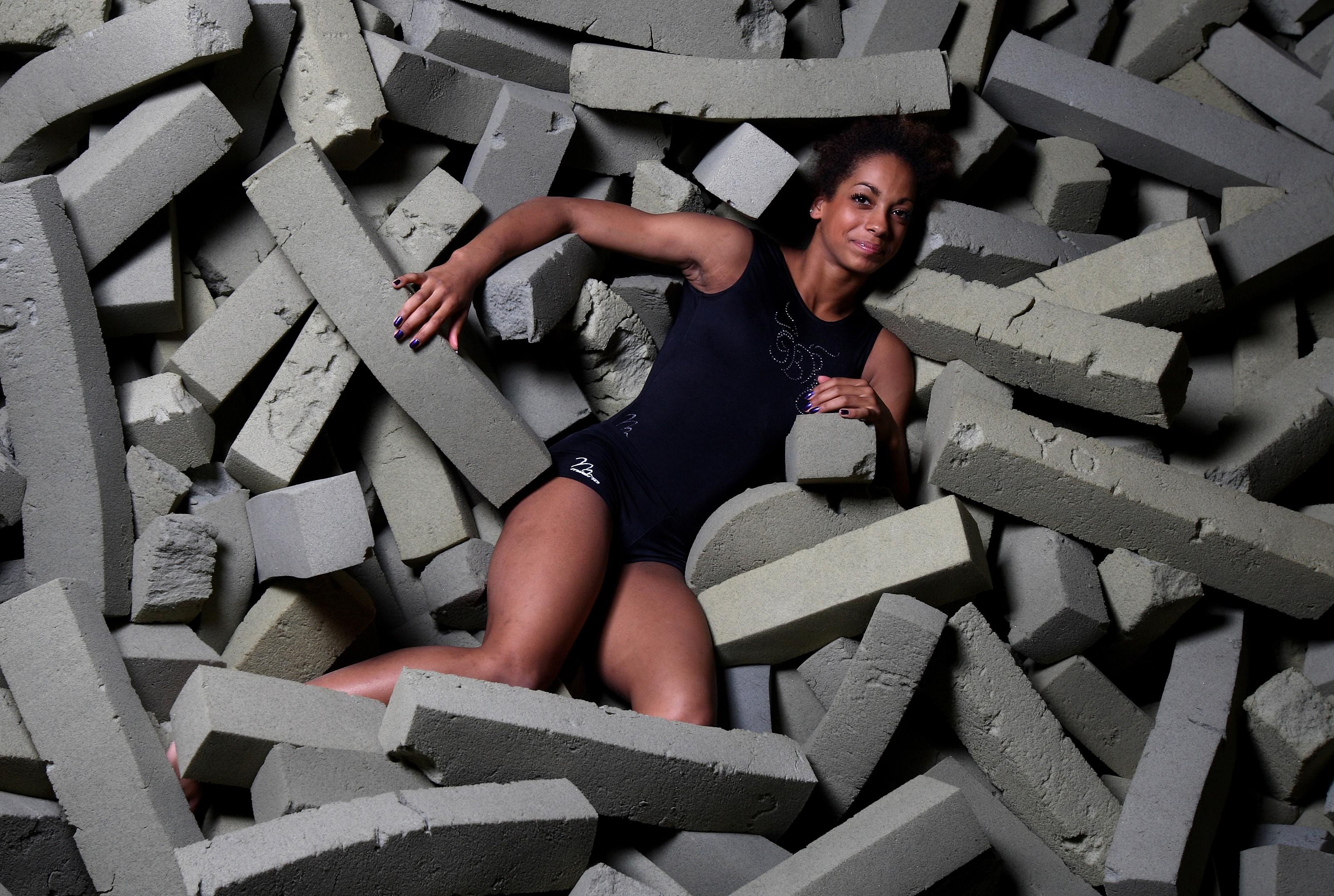
THE HISTORY
Growing up with her mum who is Polish and white, Francis didn't know much about the Jamaican side of her family, or Jamaican culture.
"My husband is half Jamaican and he's really into Black history and Jamaican history. So learning with him and going to Jamaica, learning everything that our ancestors have been through so we can live this life and chase our dreams, is incredible.
"There's such a rich history in both countries. My great-grandma was in Auschwitz, and both my grandparents on my Polish side are refugees.
"And then going to Sam Sharpe Square in Jamaica and seeing my family's name there and thinking some of my ancestors were probably slaves, and then now I get to have all this freedom and to do the sport I love, I feel so proud."
Sam Sharpe was an enslaved Jamaican who led the 1831 slave rebellion in Jamaica and was proclaimed a National Hero of Jamaica for his contributions to the eventual and final abolition of slavery across the British Empire in 1838.
So how differently does Francis view her ethnicity, nationality and heritage since deciding to compete for Jamaica in gymnastics? And how powerful can those things be for a person's identity both in and out of sport?
Francis says that when she was younger, she would just say she is "half white, half Black."
"Now I'm more like 'I'm half Polish and half Jamaican' and I really feel so proud about both those things," she says.
When she was changing nationality, Francis realised that the Jamaican gymnastics programme hadn't yet been fully developed, which was another reason for her wanting to compete for the country and help grow the sport there in the future.
"I realised that would come with some struggles, whereas Poland has got a developed gymnastics programme.
"I knew there would be some struggles both ways, either breaking into an established programme or trying to help start a brand new gymnastics programme."
She said she loved being in and around gymnastics in Jamaica from the first time she went.
"Seeing how seriously they were taking it was amazing," she says.
Francis was also excited at the prospect of continuing to build and grow the sport there, with cost being one of the main barriers to development.
"In the future, if we could continue the momentum that we've already got behind it, then there could be a Jamaican gymnast in the team or on that podium and knowing that I was maybe a tiny, tiny part of that is really exciting.
"I'll always go back and do coaching when I can and always just try to promote them."
Francis is also the perfect candidate to help develop the sport elsewhere. In 2022, she joined the British Gymnastics board as a non-executive athlete representative and is passionate about making gymnastics the best sport it can be for everyone.
'My Jamaican side really came out.'
In 2019, Francis was competing in a gymnastics exhibition event with more flexible rules, meaning she could show more personality than usual.
"I felt like my Jamaican side really came out and I was giving it all the personality and charisma and some of my routines went viral, especially in the Caribbean," she says.
"I felt like I really gained a lot of respect and more of a following from the Jamaican community. From then on, I felt so proud and that the Jamaican people who watched me were really proud of me. That was special.
'If someone does have mixed heritage, let them compete for whoever they want. You never know what positive things will come from it.'
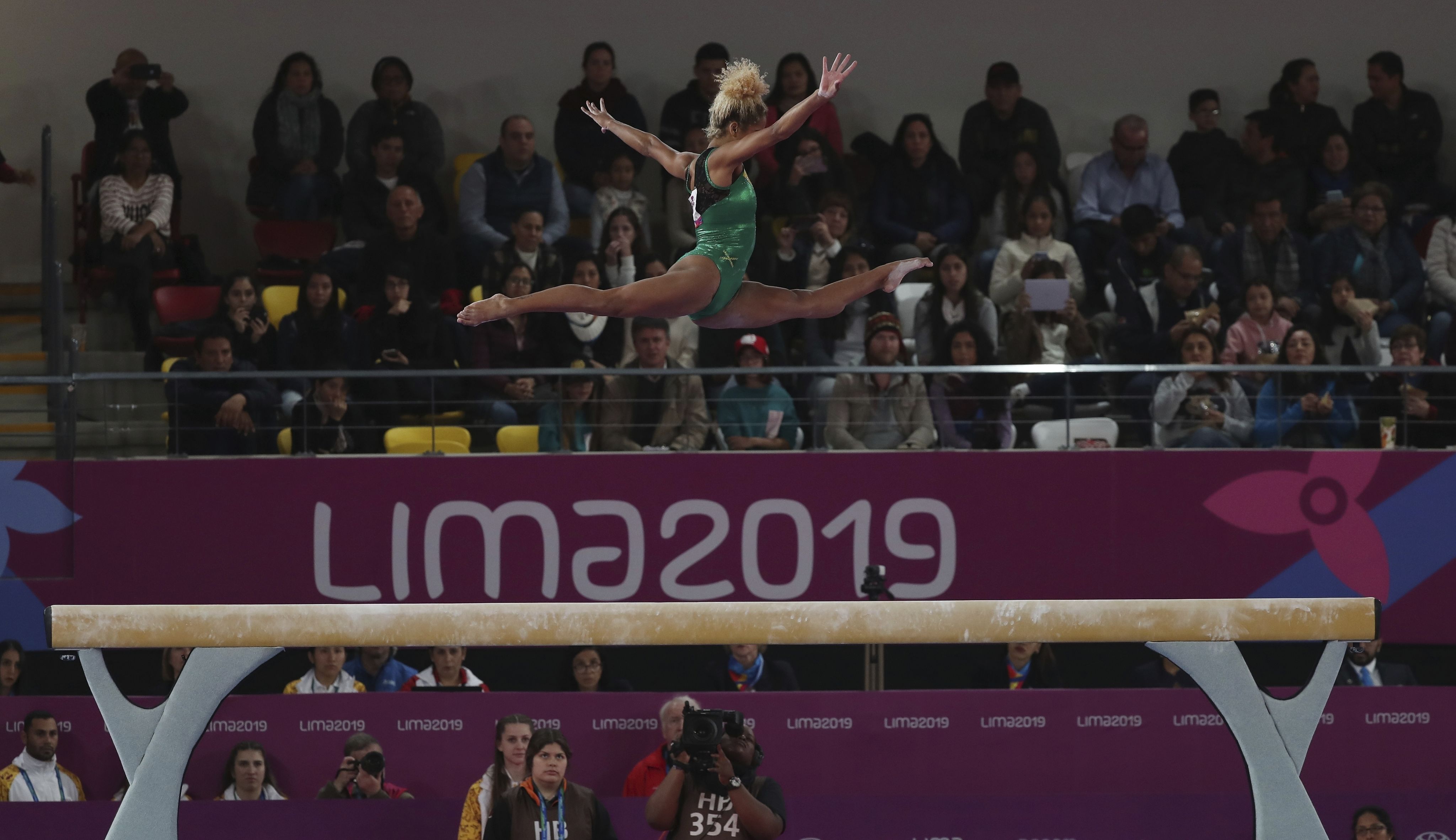
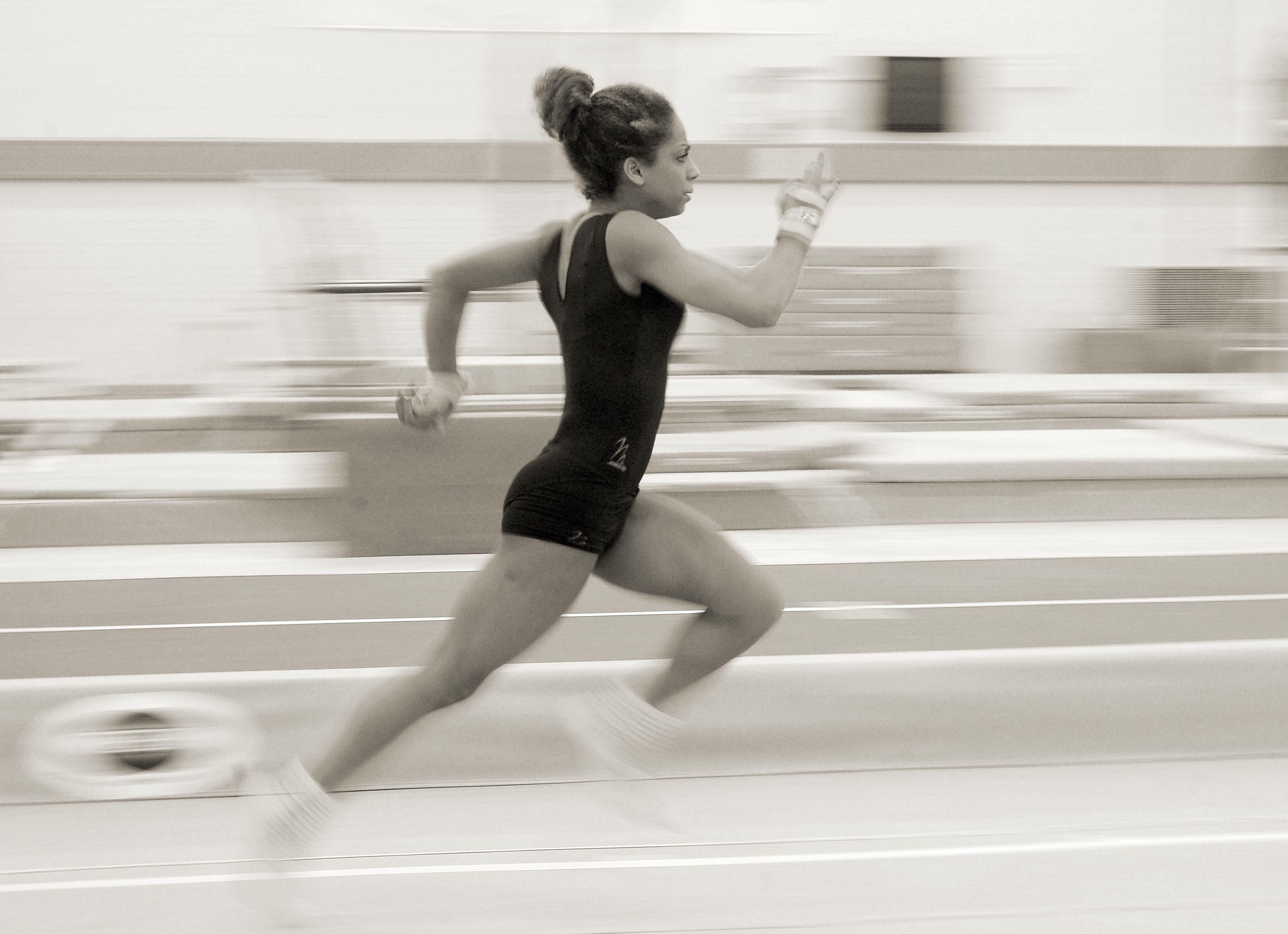
While Francis had a mainly positive response to switching allegiance to Jamaica, she said she did encounter some negativity, with people saying that she was taking the place of people who were born and raised in Jamaica.
"I think those opinions you have to just put to one side. It's really been the tiniest majority of people but those ones always stick out," she says.
"Anytime I have seen a comment like that, I've thought about it. But now having that perspective, and having a bit of time to look back on what I've done, it's like, actually, I couldn't have achieved what I've achieved for Jamaica if I was training there, because they just didn't have the facilities.
"Sometimes it does take someone coming in who wasn't born there and who lives in another country that does have the facilities to train, to then put you on the map and start that trajectory, and have a bit of money coming in. It might be a bit of notoriety and then you can get the ball rolling in their country.
“So I'll say it to the sport's fans, if someone does have mixed heritage, let them compete for whoever they want, and you never know what positive things will come from it."
And what was it like going from being a 'minority' in the UK, to competing for a country where the majority of the population is Black?
"Pretty amazing! It also fills me with pride that those gymnasts will have role models all around them and I think that's a really positive outlook for the future," says Francis.
"The sport has done so much for me, it's opened so many doors. And it's brought me a lot of happiness and joy over the years.
"I've had such a great experience that I feel like giving back to the sport, and giving back to Jamaica, who helped make my dream of becoming an Olympian come true."
'It fills me with pride that those gymnasts will have role models.'
